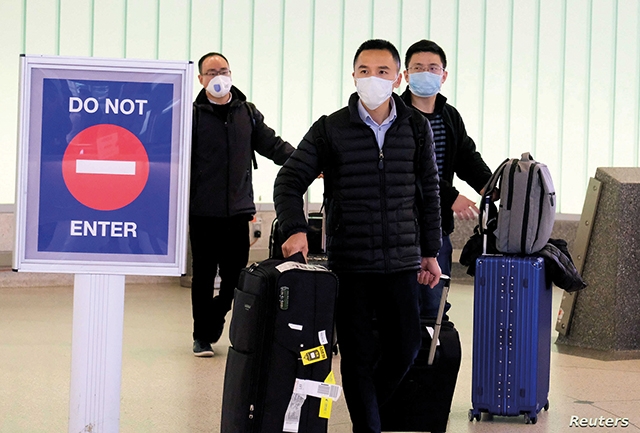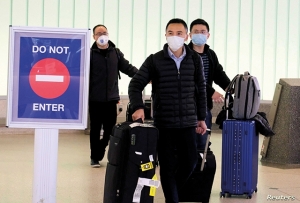Georgia & the Geopolitics of Coronavirus
Op-Ed
The coronavirus story is a good example that in an increasingly interconnected world, even diseases can have shocking economic effects and even result in geopolitical reverberations globally.
The implications could be of very different magnitude, ranging from purposeful disinformation (willingness to spread incorrect information to harm relations between two specific states), to economic troubles affecting certain sectors of a State.
Indeed, there is a high possibility of economic problems for countries affected by the virus. For example, according to Bloomberg, by the end of January 2020, fear of the virus cost stock markets $1,5 trillion, far exceeding the damage caused to the global economy from the trade war the US and China waged in 2019, which stands at roughly $1 trillion.
The virus has also lead to the closure of air and train connectivity between China and many countries worldwide. This too adds to economic troubles, as fewer people are willing to travel to China or other affected states for tourist or small/medium business affairs.
While the exact numbers of economic loss are yet to be published, it is clear that the global economy is suffering, China more than most. The outbreak of the virus is happening amid an economic slowdown in China and in the industrial center itself, Wuhan province. Nevertheless, this is not irreparable damage, and the virus is unlikely to produce devastating results for the whole of China’s economy. A scenario where the Chinese and world economy could be deeply affected is if the virus reaches an epidemic level. Then, world supply chains could be damaged, in turn undermining the entire global economy.
What the spread of virus showed China is rather problems and divisions in the realm of geopolitics. While many states have reacted to the news of coronavirus by swiftly limiting train and air connections with China, Beijing reciprocated with criticism that many measures were unnecessary and unwarranted. In a way, the story of the virus and the subsequent international reaction heightened fears and concerns within the Chinese political elite on how negatively China is perceived by many political circles in the world.
What is more likely is that the travel bans will do greater harm to smaller states. For instance, with Georgia stopping air and potentially land traffic with Iran (where the virus has already caused the death of several people) and China, the tourist sector of the Georgian economy could be affected. Here, too, the depth of the problem may not be large, but it shows how the Georgian economy, despite its small scale, is integrated into the world supply chains.
The spread of the virus also shows how widespread xenophobia is today. Many similarities can be found with the 2014 Ebola crisis, which resulted in racism directed to the African continent. These xenophobic reactions reflect divisions which exist in modern geopolitics, where the rise of China is deeply feared in many parts of the world.
Thus, in an increasingly interconnected world, a disease could produce unthinkable results. For Georgia, it means that it is most likely that the spread of the virus will not be stopped at the borders of the country. There might even be a certain death toll, but, overall, the spread of the virus will be limited. Second, the drop in numbers of Iranian and Chinese tourists to Georgia will likely produce a limited shock to an always vulnerable Georgian economy.
By Emil Avdaliani
Image by Byambasuren Byamba-ochir | AFP | Getty Images











